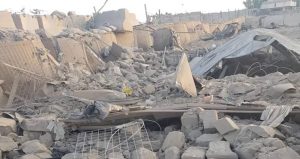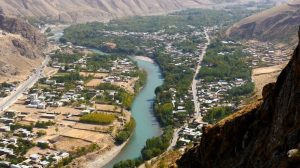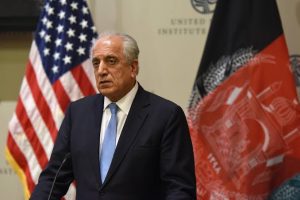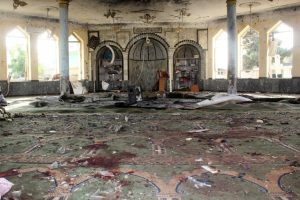Europe’s Migration Crisis

 KABUL: (Middle East Press) In recent years, Europe has faced a biggest-ever migration crisis. The various conflicts in the West Asian countries have caused a huge number of people to flee their countries and move towards Europe in quest of a safe shelter to survive.
KABUL: (Middle East Press) In recent years, Europe has faced a biggest-ever migration crisis. The various conflicts in the West Asian countries have caused a huge number of people to flee their countries and move towards Europe in quest of a safe shelter to survive.
The European countries’ plans to address the issue have not been viable so far, and the foreign migration crisis keeps being the most crucial concern for Europe. The EU Commission, in a recent report it published, has claimed that the present situation is the most critical crisis of migration to Europe since the end of World War II.
The Commission in its recent meeting of Minsters of Interior has decided to offer special financial support to such European countries as Greece undergoing the most of difficulties in accepting and processing the influx of migrants.
The Europe’s policies to face the migration problem have been criticized by some of human rights organizations, as its recent limitations set ahead of migrants who are coming to its countries’ borders to seek safety, have been severely criticized.
In its fresh report, the UN Refugee Agency has warned that some of the European countries block entrance of the migrants into their borders. The migrants heading to European borders include Syrians and Iraqis who have fled the war in their countries.
Earlier, the spokesman for the United Nations High Commissioner for Refugees (UNHCR), talking to journalist in Geneva, said that the Commission is urging the European countries which block the migrants’ access to their territories to immediately stop their measures. The spokesman added that not permitting the migrants or repatriating them could put them at death risks, as it exposes them to physical and mental damages.
According to the head of European Commission for Migrants Affairs, the Commission has recently passed a €474 million help plan to Greece’s government aiming to back the country in its attempts to deal with the problem of migrants seeking place in European countries. Accordingly, the management and spending of the allocated money is up to the Greek government, and as soon as the government begins measures to arrange for the migrants, the first help package including €30 million would be handed in to the Greece’s government.
In recent weeks the influx of migrants flowing into Greece has increased. The number is rising day by day; people arrive through sea to Greece, heading to European countries, specifically countries of Northern Europe. A Greek Island called Kos with 30000 population has seen a torrent of 7000 refugees arriving to it. They live unsheltered in the island, and despite transferring some of them, their number has not decreased yet because more new refugees are arriving every day.
The figures indicate that in the first five months of 2015 alone, 48000 illegal migrants have streamed into European borders, a number that in the same period last year was only 6500. The increased number of refugees has created a host of issues for the European countries, and the European Commission has asked that the refugees be distributed between all the 28 EU’s countries equally, a demand objected to by some of European countries.
Britain and France have a close and coordinated position regarding the flow of illegal migrants. The British Home Secretary Theresa May has recently hosted her French counterpart Bernard Cazeneuve in London. They discussed cutting the wave of migration into the EU’s countries, as they talked about more controlling over the traffic of migrants coming to Britain through Eurotunnel. Theresa May after the meeting said to the journalists that Britain and France have agreed to work closely to repatriate the refugees, specifically those who have come from West Africa to France and Britain. She added that with these measures the migrants would understand that their illegal journey is resultless, and they cannot stay in Europe. Bernard Cazeneuve, also, said that 70% of those who have attempted to enter into the EU zone were illegal economic migrants, adding that they should not be granted right to stay in Europe.
Positions on dealing with refugees’ crisis differ among European countries. The German Minister for Foreign Affairs Frank- Walter Steinmeier has claimed that the legal obstacles to stop the migration into Europe are not efficient. Steinmeier has recently said that many of the European countries now feel that the current policies of raising the blockades outside Europe’s borders in the face of the migrants to curb their flow do not cope with their increasing crisis, and other solutions must be considered.
In Germany some of the institutions are considering offering some training programs to the migrants. “Arrivo Berlin Project” is a program held in a vocational education workshop, and it has a different attitude towards the migrants. The project is an initiative presented by Germany’s civilian institutions and Berlin Chamber of Businesses aiming to give the migrants professional trainings and preparing them to find a job. The manager of Arrivo Berlin Project Anton Schoenoman says that professional labor force number in Germany is very little, an issue that would be felt in the future due to the problem of the ageing German people. The founders of the Arrivo Berlin Project believe that training the migrants is a mutually useful solution. On the one hand it is helpful for Berlin because its population is ageing, and on the other hand it is a good opportunity for migrants who are determined to stay in Germany for work.
The European varied policies in dealing with the foreign migrants is one of the major reasons that the EU have not been able to decide a unanimous European policy to address the migration crisis. Some of Europe’s countries like Germany which enjoy a high production power, or they need labor force to do inferior jobs, or even they need to hire professional workers, face the issue of migrants more positively, trying to pick people from migrants and put them into work to meet the needs for labor force. However, some of other European countries such as Britain and France basically see the case differently. They set so many limitations before migrants coming to Europe, to say that their countries are not safe for foreign migrants, and not a place to live there forever.
The migrants have always been an important part of the Europe’s history, and since the 1990s the number of the migrant’s coming to European countries has dramatically increased. Actually, the migrants make up a part of the Europe’s social, economic and cultural identity. The EU essentially accepts migrants with clear characteristics such as people who are wealthy, highly educated or experts who could be useful for the Union.
In fact the Europe’s migrant acceptance policy is selective, and it is most importantly interest-based, a case in disaccord with the Genève’s 1951 Refuge Convention and other related institutions.





